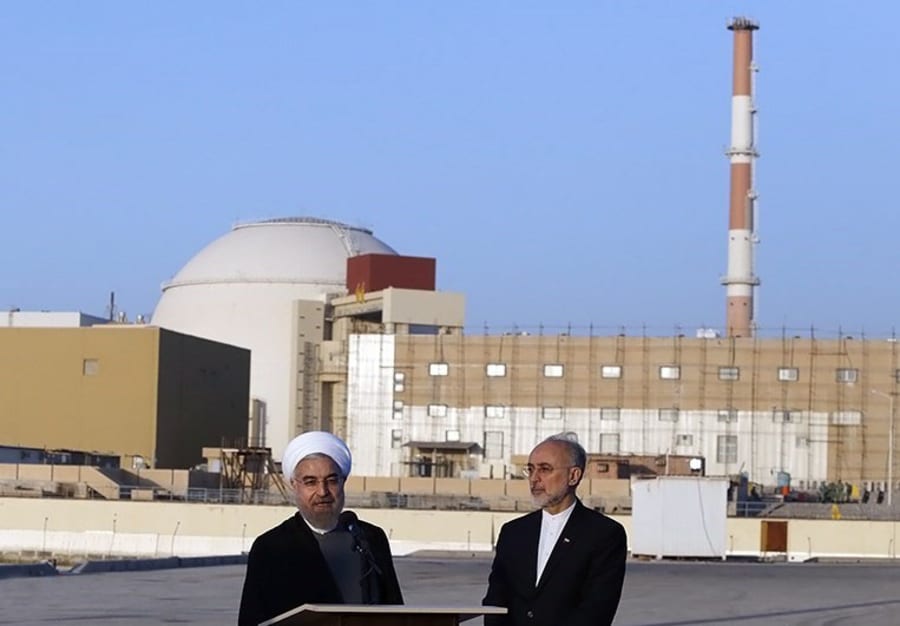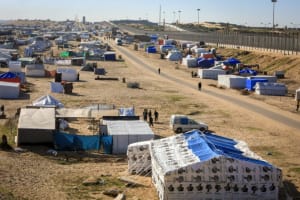Now free to buys arms, is Iran back in the nuclear race?
Maybe the better question is whether the Islamic regime was ever out of the race. According to one report, Iran is just three months away from a nuclear weapon

Last week the international embargo limiting Iran’s ability to purchase weapons ended — and now the Islamic regime has a shopping list it wants to fill with the express intent most likely of improving its nuclear capabilities.
Iranian President Hassan Rouhani began rejoicing a few days before the embargo’s end on Oct. 18.
“Thanks to the nation’s resistance and our diplomats’ efforts, and despite America’s push in the past four years, this unjust embargo is to be lifted,” he said. “As of Sunday, we can purchase or sell arms from and to anyone we desire.”
Knowing that Iran was eager to begin purchasing weapons again, the United States — which backed out of the Iranian nuclear deal in 2018 after Donald Trump was elected president — began lobbying months ago for the embargo’s extension and even threatened sanctions on any country that deals with Iran.
“The United States is prepared to use its domestic authorities to sanction any individual or entity that materially contributes to the supply, sale, or transfer of conventional arms to or from Iran, as well as those who provide technical training, financial support and services, and other assistance related to these arms,” U.S. Secretary of State Mike Pompeo said in a statement. “Providing arms to Iran will only aggravate tensions in the region, put more dangerous weapons into the hands of terrorist groups and proxies, and risk increasing threats to the security of Israel and other peaceful nations.”
“For the past 10 years, countries have refrained from selling weapons to Iran under various UN measures. Any country that now challenges this prohibition will be very clearly choosing to fuel conflict and tension over promoting peace and security,” he added.
And there is major cause for imminent concern.
Brig.-Gen. (res.) Yossi Kuperwasser, writing for the Jerusalem Center for Public Affairs, warns that Iran is just three months from having enough enriched uranium to produce a nuclear bomb and has enough for two nuclear bombs while also developing long-range missiles “that will allow it to launch nuclear weapons not only against Israel but also against targets in Europe.”
“The amount of enriched uranium in its possession and the current enrichment capacity already would allow it, if it wishes so, to enrich the uranium to a military level and produce fissile material for two nuclear explosive devices,” he wrote in a report published on Oct. 15.
He said that Iran has been in breach of the 2015 Joint Comprehensive Action Plan (JCPOA) all along and that the “absurdity” of the embargo’s ending inevitably helps Iran speed up its nuclear weapons production.
The embargo, Kuperwasser wrote a few days later, “is now lifted just when Iran has accumulated large amounts of uranium enriched to 4.5% and operates various facilities in its nuclear program, including the deep underground enrichment facility at Fordow that at the time was still unknown.”
“Iran is likely to quickly pursue advanced weapons, particularly from Russia and China,” he wrote. “These weapons would improve the defense of Iranian nuclear facilities. Iran will also seek components that will enhance the performance of its missiles that are expected to carry nuclear weapons in the future. However, there is little chance that these deals will be realized soon, due to Iran’s economic difficulties and American pressure.”
Already in September, it seemed the Russians were also gearing up for the end of the embargo.
“New opportunities will emerge in our cooperation with Iran after the special regime imposed by UN Security Council Resolution 2231 expires on Oct. 18,” said Deputy Foreign Minister Sergei Ryabkov, according to Russia’s Interfax news agency, although he did not elaborate.
During the arms embargo, Iran watched as Saudi Arabia made multibillion-dollar arms deals with the United States while other countries, such as the United Arab Emirates, Bahrain and Sudan made normalization deals with Israel strengthening the anti-Iran bloc in the region.
This makes the Abraham Accords, the normalization agreements between Israel and the UAE and Bahrain (and now Sudan), all the more timely, according to U.S. Secretary of Defense Mark Esper speaking at The Atlantic Council in Washington on Oct. 20.
“We’ve reached the point where so many of the countries in the region recognize that the biggest concern they have—we have too—is Iran and its … behavior through that region now for, what, four decades. That actually spans all the way from Africa across the Middle East into Afghanistan. So we see the common threat of Iran and how do we stand together against that,” he said. “The vision would be to have some type of security construct where countries on the peninsula, Israel, and others are working together to deter conflict with Iran… We saw Iran launch attacks against Saudi Arabia last year, on their oil infrastructure. We see Iran playing a heavy hand in Iraq.”
“Iran is all over the region. So I think folks or countries are recognizing that reality and they’re seeing the other possible benefits, as well, of normalization.”

Nicole Jansezian was the news editor and senior correspondent for ALL ISRAEL NEWS.













